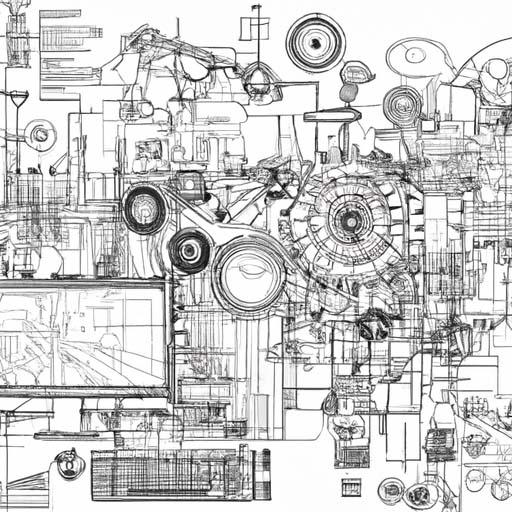
Dive deep into the history and evolution of technology automation, discovering how it has reshaped industries, education, and our daily lives over the decades. From the early days of simple machines to the current era of artificial intelligence, technology automation has revolutionized the way we work, learn, and live. In this comprehensive guide, we will explore the key features and milestones of technology automation, shedding light on the transformative impact it has had on various sectors.
The Birth of Automation
Technology automation finds its roots in the Industrial Revolution when the need to increase productivity and efficiency drove the development of machines and mechanisms to perform repetitive tasks. The invention of the spinning jenny, power loom, and steam engine in the late 18th century marked the beginning of automated processes in manufacturing. These innovations paved the way for the first wave of automation, leading to the mechanization of industries.
The Rise of Computer Automation
The advent of computers in the mid-20th century propelled technology automation to new heights. The introduction of programmable machines and the development of programming languages enabled the automation of complex tasks previously performed manually. With the invention of the first commercial computer, UNIVAC, in 1951, the era of digital automation began. Businesses and industries rapidly adopted computer automation, revolutionizing sectors such as finance, manufacturing, and communications.
Automation in the Digital Age
In the digital age, technology automation has become more sophisticated and ubiquitous. The widespread availability of personal computers and the internet has democratized access to automation tools and platforms. From email automation and customer relationship management (CRM) software to robotic process automation (RPA) and machine learning, organizations of all sizes now leverage automation to streamline operations, increase productivity, and enhance customer experiences.
The Impact on Industries
One of the most significant effects of technology automation is on various industries. Manufacturing, for instance, has witnessed a tremendous transformation with the introduction of robotics and intelligent machines. Automation has not only improved production efficiency but also reduced costs and increased product quality. Similarly, the financial sector has embraced automation to handle tasks such as transaction processing, risk assessment, and fraud detection.
Automation in Education
Technology automation has also revolutionized the field of education. Learning management systems (LMS) and automated grading systems have simplified administrative tasks for educators, allowing them to focus more on teaching and student interactions. Moreover, online learning platforms, powered by automation, have made education accessible to a global audience, breaking down barriers of time and location.
Automation in Daily Life
Technology automation has become an integral part of our daily lives. From smart homes equipped with automated lighting, temperature control, and security systems to voice-activated virtual assistants like Siri and Alexa, automation has made our lives more convenient and efficient. Additionally, the rise of autonomous vehicles and delivery drones showcases the transformative potential of automation in transportation and logistics.
The Future of Automation
As technology continues to advance at an exponential rate, the future of automation holds even greater promises. The integration of artificial intelligence, big data, and the Internet of Things (IoT) is expected to lead to more intelligent and autonomous systems. However, automation also presents challenges, such as job displacement, ethical considerations, and cybersecurity risks. It will be crucial for society to navigate these complexities as automation becomes more prevalent.
In conclusion, technology automation has come a long way from its humble beginnings during the Industrial Revolution. Its evolution has transformed industries, revolutionized education, and made our daily lives more convenient. With continuous advancements in technology, the future of automation holds immense potential, as well as important considerations for its responsible and ethical implementation.